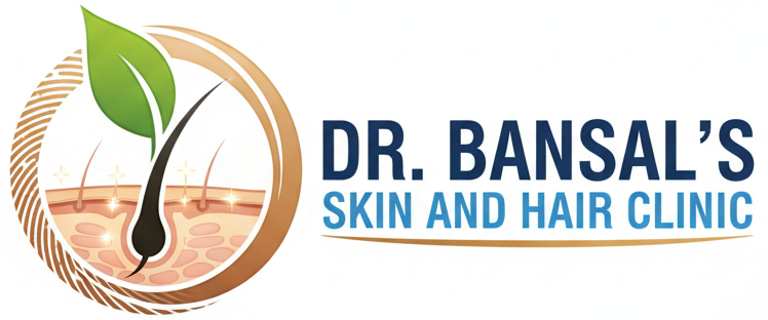Greasy Dandruff Treatment In Indore
Dr. Bansal's Hair Clinic, Indore
Dandruff (Pityriasis) of the Greasy Type
Greasy dandruff, otherwise known as seborrheic dermatitis in milder forms, results from an excessively sebum-producing scalp.
This excess oil combines with the dead skin cells and forms yellowish, sticky flakes that cling to the scalp and hair.
It is usually accompanied by itching, scalp redness, and sometimes a mild odor.
Main Causes of Greasy Dandruff
Production of excess oil, sebum, because of the overactive sebaceous glands.
Fungal overgrowth: Malassezia yeast feeds on scalp oil and causes irritation.
⚖️ Hormonal imbalance, especially during puberty, stress, or menstrual cycles.
Stress and anxiety trigger sebum and inflammation.
Unhealthy diet - oily, sugary foods worsen scalp oiliness.
Certain medications-steroids or antidepressants may increase oiliness.
Genetics or chronic skin disorders, such as seborrheic dermatitis or psoriasis.
What to Do (Treatment & Prevention)
1. Use the Right Shampoo
Choose anti-dandruff shampoos containing:
Ketoconazole (1–2%) – an antifungal that kills the Malassezia yeast.
Zinc pyrithione - this decreases fungus and sebum.
Selenium sulphide - slows cell turnover and oil build-up.
Salicylic acid - exfoliates, removes dead skin, and oil.
Coal tar – this decreases inflammation and scaling, especially in severe cases.
???? Use medicated shampoo 2-3 times a week, alternating with a mild sulfate-free cleanser on other days.
2. Keep the Scalp Clean
Wash hair frequently, about every 2–3 days, to remove oil and flakes.
Rinse thoroughly; leftover shampoo or conditioner can only increase greasiness.
Use lukewarm water, not hot, to avoid overstimulation of oil glands.
3. Optional Balanced Oiling
Avoid heavy oils, such as castor or thick coconut oil, as they can exacerbate oily dandruff.
If your scalp is dry in patches, use light oils like tea tree oil or jojoba oil sparingly once a week.
Always wash off oil after 30–45 minutes; don’t leave it on overnight.
4. Healthy Diet
Eat foods that help regulate oil production and reduce inflammation.
Omega-3 fatty acids: salmon, flaxseed, walnuts
Zinc-rich foods include: pumpkin seeds, chickpeas, spinach
Vitamin B-complex: eggs, dairy, whole grains
Probiotics: yogurt, kefir, fermented foods
-limit:
Fried and oily foods
Excess sugar and dairy
Spicy or processed junk foods
5. Stress Management
Practice yoga, meditation, or regular exercise to reduce stress hormones.
Get 7–8 hours of sleep daily; fatigue worsens scalp inflammation.
What Not to Do
❌ Don't put thick oils or hair masks too often; they block the pores.
❌ Avoid scratching or picking flakes; this can lead to infection.
❌ Don't use harsh shampoos or wash too often, as it irritates the scalp.
❌ Avoid alcohol-based gels and sprays; they dry out the scalp, leading to rebound oiliness. ❌ Don't share combs, towels, or caps- prevents the spread of fungi. ❌ Avoid stress eating or irregular sleep; both increase oil secretion.
Care
Dr. Shreyas Bansal has over 46 years of experience in promoting hair health and wellness. At Dr. Bansal’s Homeopathy Clinic, located at 2 Manish Bagh, Sapna Sangeeta Road, Indore, we provide personalised care to strengthen your hair, improve scalp health, and restore confidence naturally.
Health Hairs AT
Beauty
+91 9926120111
© 2025. All rights reserved.
